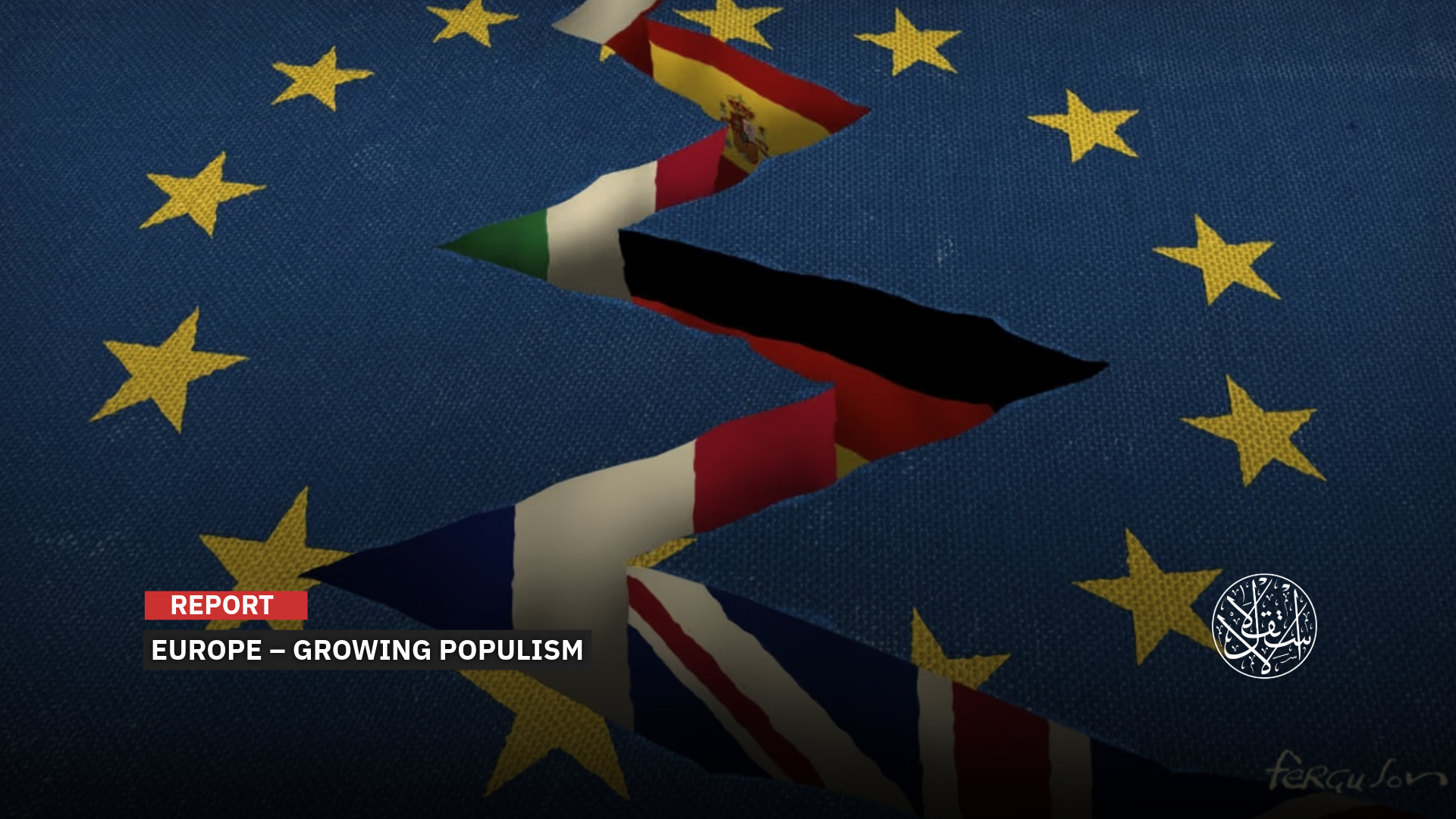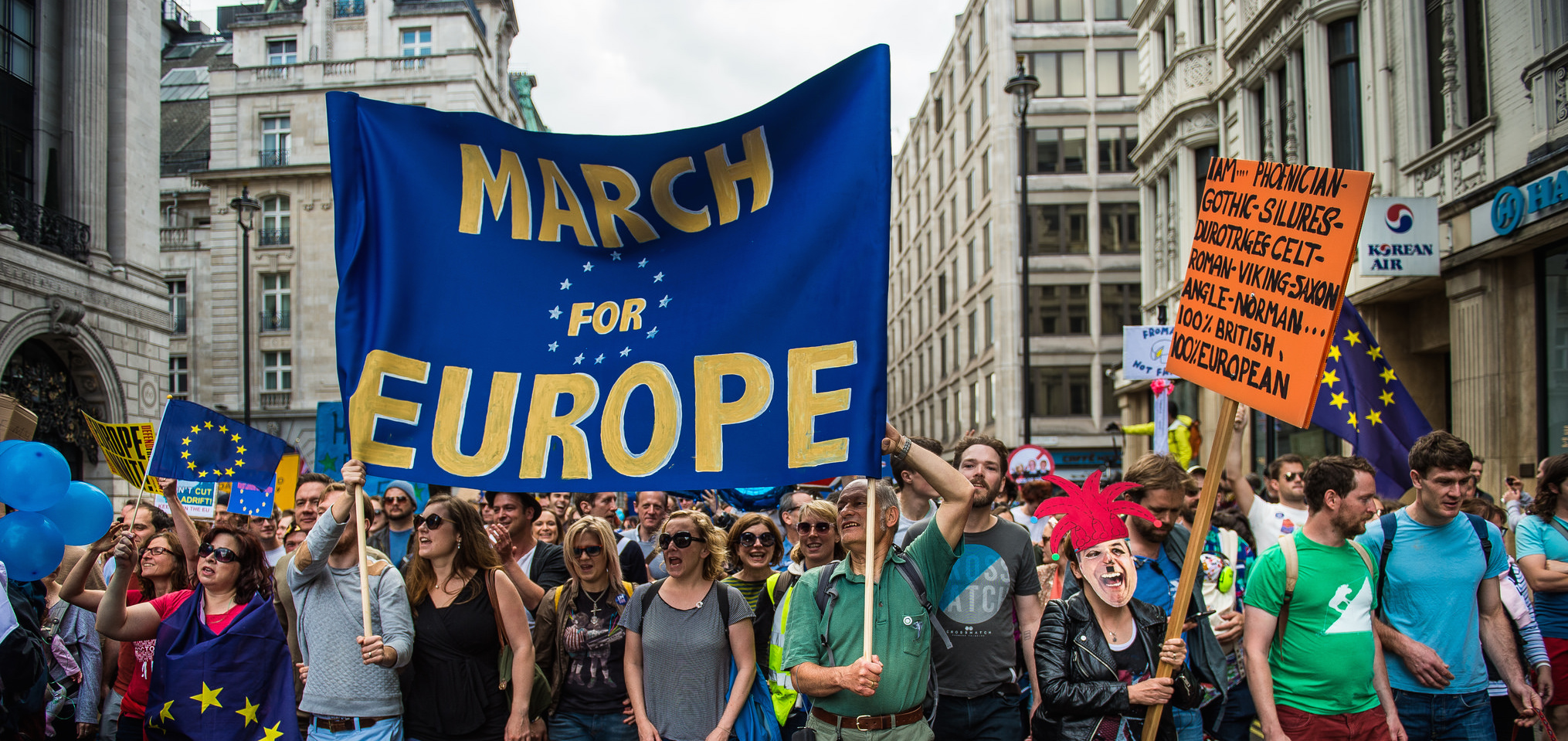How Right-Wing Populism Threatens the Future of European Democracies

“If this right-wing populist wave continues until 2027, Europe may face a new reality.”
Amid a highly competitive electoral atmosphere, the results of Norway's parliamentary elections proved that social democracy has not yet been defeated in Europe.
The center-left bloc narrowly retained power, while right-wing populists became the second political force in the country.
This coincided with the emergence of populist forces as a key player in shaping the continent's political future, supported by popular momentum and unprecedented coordination with the America First movement led by US President Donald Trump.
In Britain, Nigel Farage’s right-wing populist party, Reform UK party, has made a comeback, while in France and Germany, there are growing signs that far-right parties are moving significantly closer to power.
These shifts raise profound questions about public opinion trends in the Old Continent and the future of European democracies, amid speculation that they will succumb to the populist tide, with all its promises and risks.
Norwegian Exception
The recent Norwegian parliamentary elections marked a turning point in the political spectrum across Europe.
The center-left Labour Party, led by Jonas Gahr Store, retained its position as prime minister in a fragile coalition with left-wing and environmentalist parties, winning 87 of the 169 seats, just two seats short of the majority threshold.
However, the most striking aspect of these elections was the rise of the right-wing populist Progress Party (FrP), which doubled its vote share from 11% in the 2021 elections to 23.9%.
What is striking is that this rise did not occur in the context of a major crisis or clear governmental failure. Rather, it occurred in a country considered one of the richest and most stable in the world, with a strong welfare system, low unemployment, and high trust in institutions.
However, as elsewhere in Europe, issues such as immigration, energy prices, national identity, and taxes have become effective populist platforms for voters.
Despite its adoption of a right-wing populist rhetoric, the Progress Party seeks to differentiate itself from the likes of Marine Le Pen (France), Geert Wilders (Netherlands), and Viktor Orban (Hungary), and prefers rapprochement with the UK Conservatives and Danish Liberals.
In a striking statement, party leader Sylvi Listhaug said that the person she most admires internationally is Mette Frederiksen, Denmark's Prime Minister and head of the Social Democratic Party.
Listhaug promised to continue oil production for another 100 years, attacking what she called green communism, presenting herself as the voice of ordinary people and young people against the Oslo elite.
Observers see Listhaug as clearly trying to replicate Italy's Giorgia Meloni model, but with a more balanced Norwegian flavor.
The Hoyra party (conservative centre-right), which governed Norway between 2013 and 2021, suffered a severe blow, receiving 14.6% of the vote (24 seats), its worst result in more than two decades.
Its leader, Erna Solberg, took responsibility for this result, noting that the populists had attracted many of the conservative base.
This decline reflects a common dilemma for traditional right-wing parties in Europe, which find themselves caught between a left-wing government and a right-wing populist party that attracts voters with simple, aggressive rhetoric.
Populist Momentum
The Norwegian elections were not an exception to the general European context; rather, they embody what is happening in most of its political landscape.
A center-left governs through fragile coalitions and struggles to achieve tangible gains; a traditional right-wing party is losing its luster and seeking new leadership; and a right-wing populist is advancing, capitalizing on cultural and economic concerns.
For the first time in modern history, polls in Europe's largest economies—France, Germany, and Britain—have seen simultaneous gains by populist right-wing parties, which have become a major force in the political equation.
In Britain, Nigel Farage, leader of the UK Reform Party, is making a strong comeback amid declining public confidence in traditional parties and growing frustration with the performance of Keir Starmer's government.
Farage's party is leading the polls with a vote of 30-34%, ahead of the ruling Labour Party (20-25%) and the Conservative Party.
This rise not only reflects Farage's growing popularity, but also reveals a structural crisis in the British party system.
Even though the majority of Britons now believe Brexit was a mistake, Farage is still able to mobilize the streets with his anti-immigration and anti-political rhetoric.
For years, France’s far-right National Rally (RN) has consistently led polls ahead of the country’s next presidential election in 2027.
Figures indicate that its young leader, Jordan Bardella, could win the first round with 36% of the vote, with the direct support of Marine Le Pen.
A recent poll showed that the Alternative for Germany (AfD) party— which is under surveillance by the country’s intelligence services over suspected extremism — is now the most favored party by voters.
After a decade of welcoming refugees and migrants, Germany is now facing economic challenges with more than 3 million unemployed, providing fertile ground for populist rhetoric.

Added to this right-wing populist wave are the Brothers of Italy party, led by Prime Minister Giorgia Meloni, and the Fidesz coalition, led by Hungarian Prime Minister Viktor Orban.
In fact, most of these parties are now participating in government or pushing national policies toward more hardline positions on immigration, security, and national identity.
In the Netherlands, the Freedom Party (PVV), led by Geert Wilders, caused the collapse of the four-party coalition because the government did not take sufficiently stringent measures on immigration. New elections are now scheduled for the fall.
Although Wilders' party became the strongest force in the parliamentary elections, he did not become prime minister because he was too extreme for his coalition partners.
Slovakia is currently led by Prime Minister Robert Fico, who heads the Social Democracy-Smer party, which leans sharply to the right.
In Spain, the far-right Vox party, led by Santiago Abascal, has risen sharply to become the country's third-strongest political force, but it has been unable to participate in government.
This party hosted a major event in Madrid in early February titled ‘Make Europe Great Again’, which featured Hungary's Orban and France's Le Pen, among others.
The 2024 Portuguese elections saw the right-wing populist Chega party secure third place in the overall political landscape, quadrupling its parliamentary seats.
By adopting populist policies, the far-right Freedom Party (FPÖ) achieved overwhelming results in Austria's September 2024 legislative elections, but other parties refused to allow it to participate in any coalition government.
The right-wing Law and Justice (PiS) party was defeated in Poland's parliamentary elections at the end of 2023, but it recently elected Karol Nowrocki as president, giving it the power to veto the policies of Donald Tusk's government.
In Sweden, the far-right Sweden Democrats, led by Jimmie Akesson, came in third in the September 2022 parliamentary elections, receiving 17.5% of the vote.
Countries such as Romania, Switzerland, and Denmark have also seen a strong rise in far-right parties recently.

European Challenges
High unemployment and increasing hardship have led a growing number of voters to lose confidence in the largely liberal, centrist economics that has dominated politics in Western Europe since World War II.
While the economic policies adopted by right-wing populists, which combine increased social support with tax cuts, have been electorally attractive, analysts believe they lack a clear vision for balancing public budgets or promoting long-term growth.
Relying on reducing immigration spending or reducing bureaucracy to fill gaps worth hundreds of billions of euros appears illusory, especially since financial markets are unforgiving of fiscal laxity, as the crises in Britain and Italy have demonstrated.
Nevertheless, these economic programs have confused centrist parties, which are now avoiding necessary reforms for fear of losing votes.
Some European populists also focus on protecting traditional sectors and reject openness and competition, which perpetuates stagnation rather than unleashing new growth dynamics.
This situation has sometimes generated political paralysis, which can hinder reform and deepen recession, while populist rhetoric capitalizes on this stagnation.
These challenges come at a time when the European economy is already suffering from weak growth.
Germany has barely grown since 2019, while France and Britain are facing unprecedentedly high bond yields, reflecting the fragility of confidence in financial stability.
The rise of right-wing populist movements to power could exacerbate this fragility and add a new shock to an economy that has yet to recover from the COVID-19 pandemic and the war in Ukraine.
According to observers, the most optimistic scenario is that economic stagnation and stagnation will continue for years to come, while the worst-case scenario is the outbreak of a new bond crisis that threatens the unity of the EU and weakens its position in the global economy.

Political analyst Hassan Aswad explained to Al-Estiklal that, “If this right-wing populist wave continues until 2027, Europe may face a new reality, represented by the rise of far-right and populist movements to power in countries that represent nearly half of the EU's GDP.”
“There are fears that the European Parliament will become, in its upcoming sessions, an arena for increasing influence for far-right parties, threatening the entire path of European integration,” he added.
“If Europe’s political system is to survive today’s populist age, governments must lead with clarity, purpose, and a renewed democratic mission,” he said.










